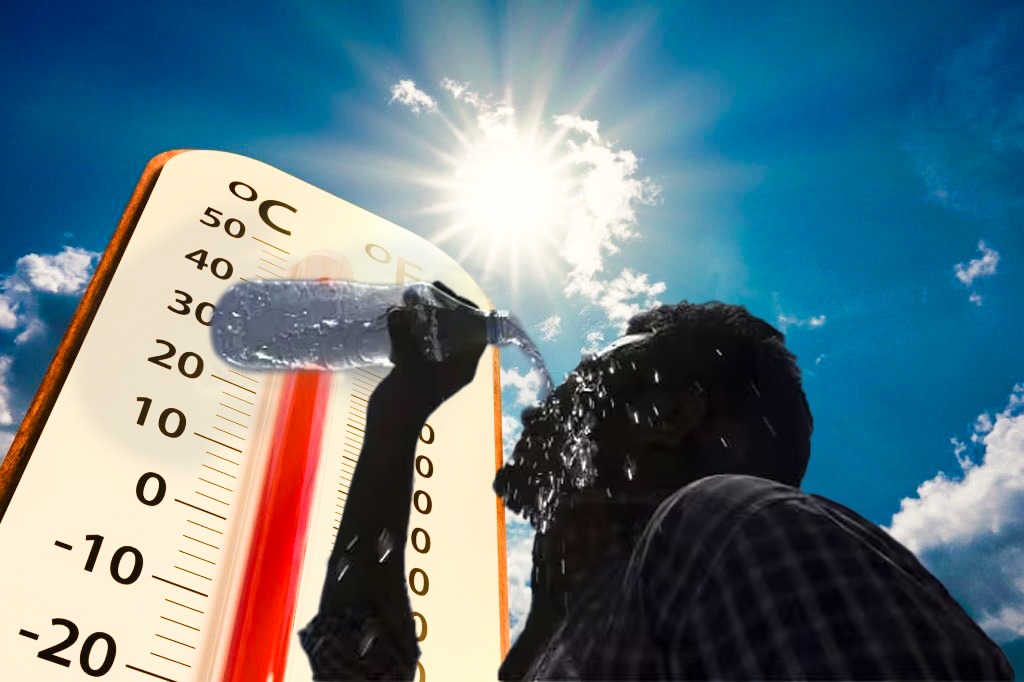Stay Safe in Extreme Heat in Bangladesh

Bangladesh is currently experiencing extreme heat, with temperatures soaring up to 40°C in some parts of the country. This is causing discomfort, health problems, and even fatalities for people. In this article, we'll discuss the dangers of extreme heat, how to protect yourself and others during a heatwave, and the role of climate change in exacerbating extreme heat in Dhaka, Bangladesh.
What are the dangers of extreme heat?
Extreme heat can cause a range of health problems, from mild discomfort to life-threatening conditions. Some of the common dangers of extreme heat include:
1.Heat exhaustion and heat stroke: Symptoms include dizziness, weakness, headache, nausea, vomiting, and high body temperature. If left untreated, heat exhaustion can progress to heat stroke, which is a medical emergency.
2. Dehydration and electrolyte imbalance: When you sweat excessively, you lose fluids and essential minerals like sodium and potassium, which can lead to dehydration and electrolyte imbalance.
3. Exacerbation of chronic health conditions: Extreme heat can worsen chronic health conditions like heart disease, respiratory problems, and diabetes.
How can you protect yourself from extreme heat?
There are several steps you can take to protect yourself from extreme heat:
1. Stay hydrated and avoid sugary drinks: Drink plenty of water, coconut water, and other non-alcoholic beverages to stay hydrated. Avoid sugary drinks and alcohol, which can dehydrate you.
2. Wear loose, light-coloured clothing: Wear loose-fitting, lightweight, and light-coloured clothing to help your body stay cool. Dark colours absorb more heat and can make you feel hotter.
3. Stay indoors during the hottest part of the day: Try to stay indoors during the hottest part of the day, usually between 11 am and 3 pm. If you need to go outside, wear a hat and use an umbrella to shade yourself from the sun.
4. Use air conditioning or fans if available: If you have access to air conditioning or fans, use them to cool down your living space. If you don't have air conditioning, take cool showers or baths to lower your body temperature.
How can you help others during a heatwave?
If you know someone vulnerable to extreme heat, such as elderly people or young children, here are some ways you can help:
1. Check on elderly relatives, neighbours, or friends: Make sure they have access to cool and shaded places, enough water, and food.
2. Offer water or other non-alcoholic drinks to those in need: If you see someone who looks dehydrated or uncomfortable, offer them water or other non-alcoholic drinks.
3. Provide a cool place for people to rest: If you have a cool place, like a shaded porch or air-conditioned public space, offer it to people who need it.
4. Contact local authorities or emergency services if you notice someone experiencing symptoms of heat exhaustion or heat stroke: If you see someone who is disoriented, has a high body temperature, or is unconscious, call local authorities or emergency services for help.
How is climate change affecting extreme heat in Bangladesh?
Climate change is exacerbating extreme heat in Bangladesh and around the world. Rising temperatures and changing weather patterns are making heat waves more frequent, intense, and prolonged. This has several impacts, including:
1. Impact on agriculture and food security: Extreme heat can damage crops, reduce yields, and threaten food security. This can have far-reaching consequences for people's livelihoods and well-being.
2. Strategies for adapting to and mitigating the effects of climate change: Governments and communities need to develop strategies to adapt to and mitigate the effects of climate change. This includes investing in resilient infrastructure, promoting renewable energy, and reducing greenhouse gas emissions.
According to reports, Bangladesh is currently facing extreme heat with temperatures rising to 40.4 degrees Celsius in Dhaka, the highest in 58 years. The previous record in Dhaka was set in 1965 when the temperature reached 42 degrees Celsius. Other districts in the country are also experiencing mild heatwave conditions. Extreme heat is causing discomfort, health problems, and even fatalities for some people. Additionally, climate change is exacerbating the frequency and intensity of heat waves in Bangladesh and around the world. The impacts of extreme heat on agriculture, food security, and public health are becoming increasingly concerning. Individuals and governments must take action to adapt to and mitigate the effects of climate change to reduce the risks associated with extreme heat in Bangladesh.
Here are some FAQs related to extreme heat in Bangladesh:
Q. What is the difference between heat exhaustion and heat stroke?
Heat exhaustion is a milder form of heat illness characterized by symptoms such as fatigue, headache, dizziness, and nausea, while heat stroke is a more severe and potentially life-threatening condition that can cause organ damage and even death.
Q. How can I stay hydrated during extreme heat in Bangladesh?
Drink plenty of water and electrolyte-rich fluids, avoid caffeine and alcohol, and eat foods with high water content to stay hydrated during extreme heat.
Q. What is the role of emergency services during extreme heat in Bangladesh?
Emergency services play a crucial role in responding to heat-related emergencies and providing medical assistance to those affected by heat illness.
During periods of extreme heat in Bangladesh, it is important to take measures to protect yourself from heat-related health problems such as heat exhaustion and heat stroke. Stay hydrated, wear lightweight clothing, and seek shelter during the hottest parts of the day. Additionally, it is crucial to support climate change mitigation efforts to reduce the risk of future extreme heat events. By following these simple steps, you can help ensure your safety and well-being during periods of extreme heat in Bangladesh. We encourage you to contact National Hospital Chattogram if you are in an emergency situation.
